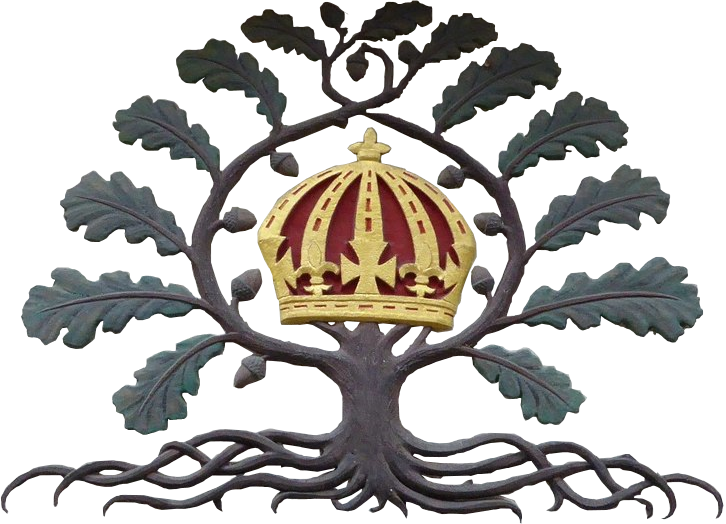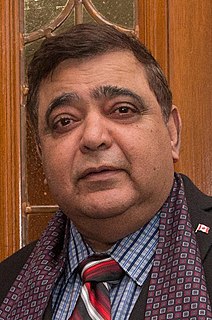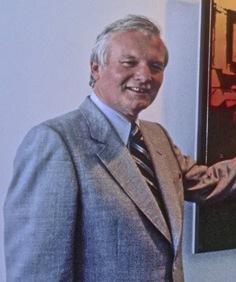The topic of this article may not meet Wikipedia's notability guidelines for companies and organizations .(April 2011) (Learn how and when to remove this template message) |
The Macleod Group was a short-lived pressure group and dining club associated with the 'left-wing' of Conservative Party that existed in 1975 before amalgamation with others to form the Tory Reform Group. It was composed of Tories who were considered progressive on many of the social issues of the time - for example, many supported the abolition of capital punishment - and strong supporters of Britain's membership of the EEC.

The Tory Reform Group (TRG) is a pressure group associated with the British Conservative Party, that works to promote the values of the One Nation Tory vision.
The group was established soon after the general elections of 1974 by Nicholas Scott. The President was David Knox, and the vice-presidents were Robert Carr, Lynda Chalker, Sir Nigel Fisher and Nicholas Scott.

Sir Nicholas Paul Scott was a British Conservative Party politician.

Leonard Robert Carr, Baron Carr of Hadley, PC was a 20th Century British Conservative Party politician who was the Home Secretary of the United Kingdom from 1972 to 1974.
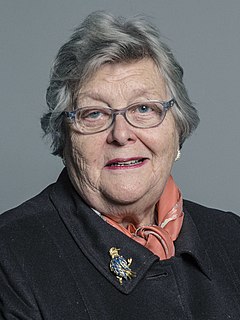
Lynda Chalker, Baroness Chalker of Wallasey, is a British Conservative politician who was the Member of Parliament for Wallasey from 1974 to 1992. She served as Minister of State for Overseas Development and Africa at the Foreign Office, in the Conservative government from 1989 to 1997.
In January 1975 the Macleod Group came out in support of Edward Heath in the 1975 Conservative leadership election. [1] When Margaret Thatcher won the contest, the group expressed disappointment at her choices for the Shadow Cabinet. They were particularly displeased with the absence of Robert Carr, Peter Walker, and Nicholas Scott in the Shadow Cabinet, and complained that the common factor was neither age nor ability, but that they were all on the 'left' of the party. [2]

Sir Edward Richard George Heath, often known as Ted Heath, was a British politician who served as Prime Minister of the United Kingdom from 1970 to 1974 and Leader of the Conservative Party from 1965 to 1975. He was a strong supporter of the European Communities (EC), and after winning the decisive vote in the House of Commons by 336 to 244, he led the negotiations that culminated in Britain's entry into the EC on 1 January 1973. It was, says biographer John Campbell, "Heath's finest hour". Although he planned to be an innovator as Prime Minister, his government foundered on economic difficulties, including high inflation and major strikes. He became an embittered critic of Margaret Thatcher, who supplanted him as Tory leader.
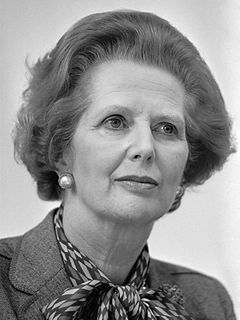
The 1975 Conservative Party leadership election was held in February 1975, in which the party's sitting MPs voted Margaret Thatcher as party leader on the second ballot. Previous leader Edward Heath stood aside after the first ballot, in which he unexpectedly finished behind Thatcher. The Conservatives were the official Opposition to the Labour government, so Thatcher also became Leader of the Opposition.

Margaret Hilda Thatcher, Baroness Thatcher, was a British stateswoman who served as Prime Minister of the United Kingdom from 1979 to 1990 and Leader of the Conservative Party from 1975 to 1990. She was the longest-serving British prime minister of the 20th century and the first woman to hold that office. A Soviet journalist dubbed her "The 'Iron Lady'", a nickname that became associated with her uncompromising politics and leadership style. As Prime Minister, she implemented policies known as Thatcherism.
In September 1975, the Macleod Group merged with Pressure for Economic and Social Toryism (Pest),the Progressive Tory Pressure Group and the Social Tory Action Group to form the Tory Reform Group and many prominent members in the Macleod Group went on to play a big role in the Tory Reform Group. [3]




